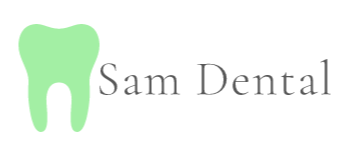
Gratitude is more than just saying “thank you.” It’s a powerful emotional and psychological tool that, when practiced regularly, can lead to long-term improvements in mental health and overall well-being. While it might seem like a simple act, the practice of gratitude has deep roots in science. Neuroscience, psychology, and behavioral health studies all point to the significant benefits of gratitude on the human brain and emotional state. In a world increasingly filled with stress, anxiety, and social comparison, understanding the science behind gratitude offers a hopeful path toward emotional resilience.
Gratitude Rewires The Brain
One of the most fascinating discoveries about gratitude is how it physically changes the brain. Neuroscientific research using fMRI technology shows that practicing gratitude consistently activates the brain’s reward system — specifically, the medial prefrontal cortex. This region is associated with feelings of pleasure, decision-making, and social cognition. When we focus on things we’re thankful for, the brain releases dopamine and serotonin, two key neurotransmitters responsible for feelings of happiness and well-being.
Over time, this repeated activation creates neural pathways that reinforce a more optimistic and appreciative perspective. Essentially, gratitude acts as a mental workout. The more often it’s practiced, the more natural it becomes for the brain to default to positive thinking instead of negative rumination. This doesn’t mean ignoring challenges or pretending everything is perfect, but rather, rewiring the mind to see opportunities for joy and connection even in difficult moments.
Reduces Stress And Anxiety
Chronic stress and anxiety are two of the most common mental health concerns globally. What’s promising is that gratitude has been shown to reduce these symptoms. By shifting attention away from worries and onto things we value and appreciate, gratitude interrupts cycles of anxious thinking. Studies suggest that writing in a gratitude journal even just a few times per week can result in a significant drop in cortisol levels, the hormone responsible for stress.
Gratitude also promotes better emotional regulation. Instead of reacting impulsively to stressful situations, grateful individuals often demonstrate more patience, calm, and clarity. This mental steadiness makes it easier to manage daily challenges, whether it’s a tough work situation or a personal conflict. In other words, gratitude builds a buffer against life’s inevitable ups and downs.
Strengthens Emotional Resilience
Beyond reducing symptoms of stress and anxiety, gratitude enhances overall emotional resilience. This refers to the ability to recover quickly from setbacks, adapt to change, and keep moving forward in the face of adversity. People who regularly practice gratitude tend to be more optimistic, experience greater life satisfaction, and have a stronger sense of purpose.
Psychological studies show that grateful individuals are less likely to fall into cycles of depression. While gratitude is not a cure for clinical depression, it can be an effective complementary practice. By focusing attention on the positive aspects of life, however small they may be, gratitude helps anchor individuals to reality in a way that feels stable and empowering. It reminds people that despite pain or loss, there are still moments of goodness and connection worth holding onto.
Improves Relationships And Social Support
Humans are social creatures, and our mental health is deeply affected by the quality of our relationships. Gratitude has a unique way of strengthening interpersonal bonds. When people express appreciation — whether to a partner, friend, co-worker, or even a stranger — it fosters trust, deepens connection, and increases mutual respect. This creates a positive feedback loop where both parties feel seen and valued.
Moreover, expressing gratitude can encourage others to be more supportive and kind in return. These social exchanges form the foundation of strong support networks, which are critical for maintaining mental health. In fact, studies have found that people who feel supported by a grateful partner are more likely to feel secure, happy, and emotionally stable in the relationship.
Enhances Sleep And Physical Health
Although this article focuses on mental health, it’s important to recognize the connection between mind and body. Gratitude has been linked to better sleep quality — a vital factor in emotional well-being. People who engage in gratitude practices before bed often report falling asleep faster, staying asleep longer, and waking up feeling more refreshed. This is likely due to decreased rumination and anxiety, allowing the nervous system to relax.
Additionally, grateful individuals tend to take better care of their health. They are more likely to engage in regular exercise, attend medical appointments, and maintain healthy eating habits. These behaviors contribute not just to physical wellness but also to a more balanced and stable mental state.
Conclusion
The science behind gratitude reveals a compelling truth: practicing thankfulness isn’t just a feel-good habit, it’s a powerful tool for improving mental health. By rewiring the brain for positivity, reducing stress and anxiety, strengthening relationships, and enhancing emotional resilience, gratitude becomes more than just a nicety — it becomes a necessary part of emotional hygiene. In a world that often emphasizes what’s missing, choosing to focus on what we have can be a radical act of self-care. Whether it’s writing in a gratitude journal, expressing appreciation to someone else, or simply taking a moment each day to reflect on what’s going well, the benefits of gratitude are well worth the effort. And in the process, we not only change our mindset — we transform our lives.
Here are some helpful resources to explore:
https://colturidebucuresti.net/
https://sunglassesoutletsky.com/
https://bestcriminallawyerdelhi.com/
https://tabernaluciferina.com/
https://launchpadcreative.com.au/
https://dvplegalconsultants.com/
https://dailyghnewsonline.com/




